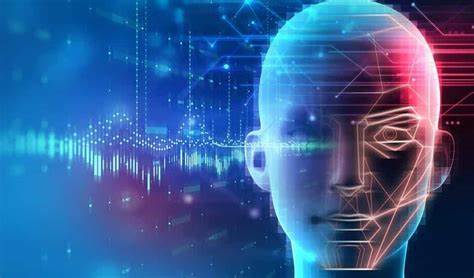Fears surround FR technology
“刷脸”真的安全吗?
Forgot your password or your ID? Well, facial recognition (FR) technology can help. Using just their faces, people can unlock their smartphones, make payments and take the subway. FR technology has also been used to catch criminals.
忘记了账号密码?没关系,人脸识别技术可以帮到你。人们可以通过面部识别解锁智能手机,进行支付并搭乘地铁。人脸识别技术还能用于抓捕犯罪分子。
However, as the use of FR applications has become more widespread, the technology has aroused controversy over privacy and financial security risks.
然而,随着人脸识别技术的应用日益广泛,这项技术也引发了关于隐私以及金融安全风险的争议。
A survey jointly released by Guangzhou-based Nanfang Metropolis Daily and the Personal Information Protection Task Force on Apps said that almost 65 percent of respondents think that FR technology is being abused.
由广州的《南方都市报》与App专项治理工作组联合发布的一项调查显示,约有65%的受访者认为人脸识别技术被滥用了。
Even worse, more than 30 percent said they have actually experienced financial loss as well as invasion of privacy due to facial information leak and abuse.
更糟糕的是,超过30%的人表示,曾因自己的人脸信息泄露、滥用等遭受经济损失或隐私被侵犯。
According to Xinhua, many applications do have loopholes that could lead to leaks in personal and facial information data.
据新华社报道,许多应用软件的确存在漏洞,会导致个人及面部信息数据泄露。

Loopholes aren't the only worry, though. On some online trading platforms, only 2 yuan is charged for thousands of photos of people's faces, but such trade is neither authorized nor legal.
但漏洞并不是唯一令人担心的事。在一些在线交易平台上,只需两元便能买到上千张人脸照片,但这类交易并未经过授权,也不合法。
In August, two suspects were arrested in Hangzhou, Zhejiang province, for allegedly stealing and reselling personal information.
今年8月,两名犯罪嫌疑人因涉嫌窃取、转售个人信息在浙江杭州被逮捕。
This has prompted concerns about the security of personal bioinformation. "Physical characteristics, including facial features and fingerprints, are some of the most important identifiers for individuals. Unlike our ID, which can be modified, our bioinformation stays permanent for life," Zhang Xin, associate professor at the University of International Business and Economics, told CGTN.
这一事件引发了对个人生物信息安全的关注。“人脸、指纹等生理特征对于个人而言是最为重要的标识。账号可以修改,但我们的生物信息却会陪伴我们终生,”对外经济贸易大学副教授张欣在接受中国国际电视台采访时如此表示。
Therefore, there should be a legal framework that regulates the collection, use, storage and transmission of bioinformation, according to Zhang.
因此,张欣认为,应当建立一个规范生物信息收集、使用、储存、传输的法律机制。
Though China does not have specific regulations relating to FR technology, the China Cyber Security Law, which came into effect in 2017, states that personal information can only be collected when individuals are informed and agree to the aims and scope of the collection.
尽管中国目前还没有关于人脸识别技术的具体法规,但2017年起实施的《中华人民共和国网络安全法》规定,网络运营者收集个人信息,应当明示收集、使用信息的目的和范围,并经被收集者同意。
The Civil Code, which was adopted this year, also states that personal consent is required before the collection and processing of personal information. And users have the right to ask to withdraw their personal information, according to Zhu Wei, deputy director of the Communication Law Research Center at the China University of Political Science and Law.
今年通过的《民法典》也规定,需经自然人同意方可收集处理个人信息。中国政法大学传播法研究中心副主任朱巍表示,用户有权要求删除自己的个人信息。
Tech companies have been optimizing their FR algorithm and the ways in which they collect data. According to CGTN, they are now addressing security risks with more advanced technology, like federated learning that can train the algorithm without directly accessing the data the company collects. This reduces the possibility of leaks.
科技公司一直在优化人脸识别算法以及收集数据的方式。据中国国际电视台报道,如今这些公司都在通过更先进的技术处理安全风险,如联邦学习,这种技术无需直接获取企业所收集的数据便能进行算法训练,从而减少信息泄露的可能性。



